How Kenyans view government’s Covid 19 messaging
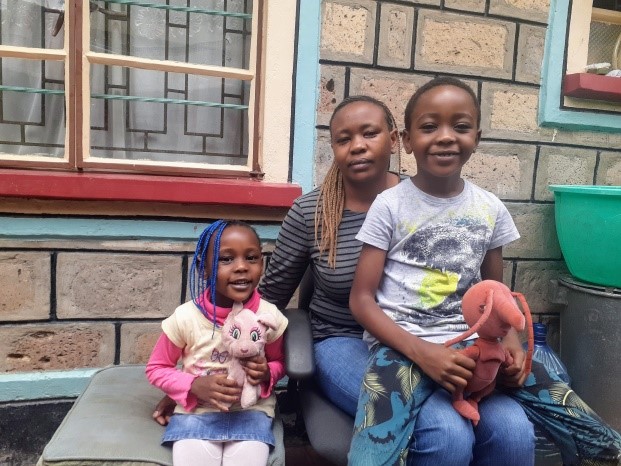
Though the Kenya Government gives assurances that health facilities are safe places to go even in the midst of the Covid 19 pandemic, it seems people are not convinced.
Among the skeptical group are those who should go to hospital regularly to acquire essential medical services. They include mothers, pregnant women and young women who might need contraceptive services. It turns out that doubt abounds. A mother of a 4-year old girl says she avoids going to a health facility because danger abounds all along the way. “We have not gone to the clinic since Covid restrictions came into force in March,” says Racheal Wanjiku. “As a mother I want to take my daughter to the clinic for immunization and Vitamin A supplementation (VAS), among a few other necessary services. But I’m apprehensive. In an estate like ours, you find about 100 children, including those under the age of five. If even a quarter of them gathered together at facility alongside those from other residential estates, transmission of Covid 19 seems highly likely. So I’m not at ease.”
The last time she took her daughter Danni-Elgah to the clinic was in February, a week or two before Covid became a Kenyan problem. So Danni-Elgah has missed height-and-weight monitoring, deworming and VAS since March. Racheal is torn between her child’s need for regular clinic services on the one hand, and her fear of Covid 19 on the other. But there is more:
“So the government says facilities are safe. Yet we get there by public transport. Mataus don’t sanitise passengers any more. For the mother of a 4-year old, a matatu is a nightmare. First, your child is distressed with the mask, she says she can’t breathe properly. Then you’re trying to keep her touching the seat in front and other things around her. Then you’re keeping her from touching her eyes, mouth or nose. Add to that your worry about the people around you, some of whom have pulled their masks under their noses. Your heart is beating fast. Now consider that some parents have more than one child to take to the clinic. No, I’d rather stay at home and wait this disease out,” Racheal says.
Racheal believes the government has a solution at hand that can help allay parents’ anxiety: community health workers. For years now, these workers have been going door-to-door dispensing polio vaccines to children in almost every household. “They can be used to provide essential services to children now,” Racheal argues. “This would keep both parents and children home and reduce their risk exposure. Infrastructure is already in place,” she explains. “Parents already have the Mother-Child booklet. Whatever service the child receives gets ticked in the booklet. It can help keep families at home.”
Racheal shares some insightful views about what she calls the two-sided impact of Covid 19. There is the good and the bad, she says. The bad is that she lost her job and now struggles to care for her family. “We have six months’ rent arrears,” she says. Further, her children now can’t socialise with other neighbourhood children.
“But there is a good side which includes the fact that we spend more time together as a family. Before Covid, we left home hurriedly and returned too worn out to bond. They did their homework while I prepared supper, immediately after which they went to bed. Covid 19 has enabled us to bond. I now know their academic shortfalls.”
One surprising discovery she has made is that isolation stresses even children. Her 8-year old son frequently tells her that he misses playing with his friends.” It seems that socialisation may never be the same again,” she says, “not in the near future.” However, she tries to keep the children occupied by getting them to help her in the kitchen. “One of their greatest joys is in helping me come up with recipes, which we then prepare in the kitchen. They love it,” she says.
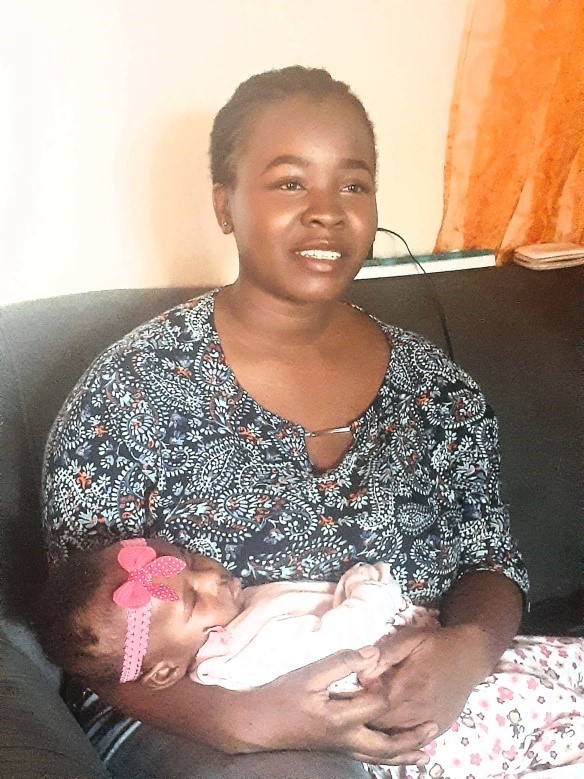
Racheal is not alone in her battle to find a balance to the isolating impact of Covid 29 restrictions. A new mother, Gloria Abwonza, says she is struggling with depression. The second-year paralegal student at the Kenyan School of Law is mother to 4-month old Jewel, whom she takes to the clinic every month. “Public transport is scary,” she says. “So I use a taxi.”
Congestion at the private health facility she attends also bothers her. “The facility’s Covid infection prevention strategy is not impressive. At the gate things seems real fine, with a sanitiser and a temperature reader at hand. Inside, however, many mothers not maskless. No one monitors to remind them to mask and keep distance. There’s massive congestion.”
Gloria decided that to minimise chances of acquiring Covid 19 at the facility, she must arrive earlier than most other people. By the time others start to arrive, she’s usually on her way out. What the new mother finds hard to escape, however, is depression. “I’m so isolated and overwhelmed. I cannot go out for a walk or a visit with my baby. And my friends cannot visit me. Further, because the baby is so little, I cannot go for a walk. I long for moments alone, for solitude but I can’t find it. So I socialise with my friends online.”
She has another refuge when she gets overwhelmed: her mother and brother with whom she stays. “Sometimes I get extremely low. Then mom is there to unburden myself to. And although I cannot go out of the house for those alone moments, I do get a break from carrying the baby when she sleeps or my brother carries her,” Gloria says.
Of the government’s Covid 19 messaging, Gloria finds a downside to keeping the identities of Covid positive people hidden. It blunts the impact of the message, she says. She wishes more infected people would come out in the open. If people knew that someone in their neighbourhood is infected, someone they know, they might take the message more seriously.
Almost prophetically, Gloria’s words become true of a group of three young women I meet near a bank. Anne Ngome, 20, and Rebecca Mungai, 19, dismiss the existence of Corona virus with the the excuses that they haven’t seen a single person who has it. When I meet them, Ann has her mask pulled below her chin while Rebecca has hers in her hand. I ask if any of them has been to hospital recently and Ann says she has, a week previously. “The hospital was crowded but most people had their masks on. The important thing, however, is that I have not got Covid 19,” she says.
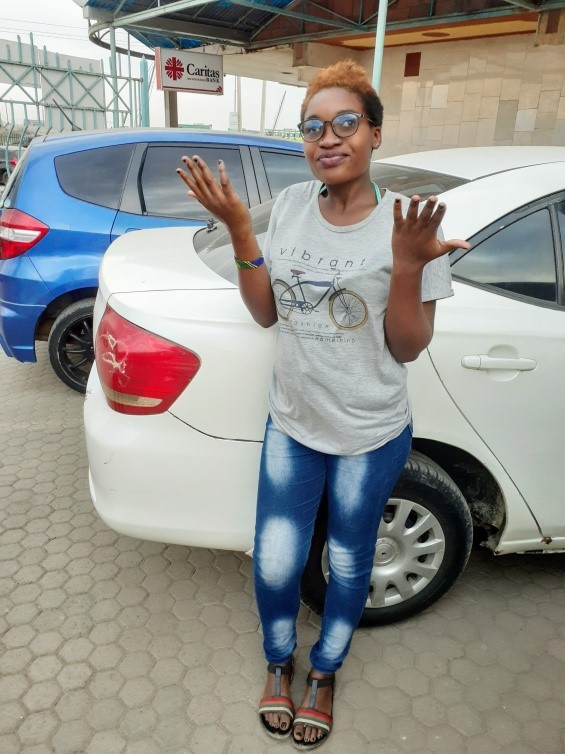
These two young women are everything the ministry of Health would not want the youth to be. Rebecca says she has not been to a health facility, whether for contraceptives or any other health related issue. “I’m very healthy,” she says laughing. Then she adds, “I don’t believe there is Covid 19. I believe in God.” Asked what she would change about the government’s anti-Covid 19 strategy, Rebecca says shutting down bars and clubs is a mistake. “For single women like me, bars and clubs are where we find men who pay us attention. So this shut down is real punishment. Besides, the masks make breathing difficult. They also hide our beauty. Men don’t notice you a lot when you’re masked. There was a time I came across this handsome guy. He didn’t even notice me. He just passed. Then I realised it was the mask: he could not see me smile at him.”
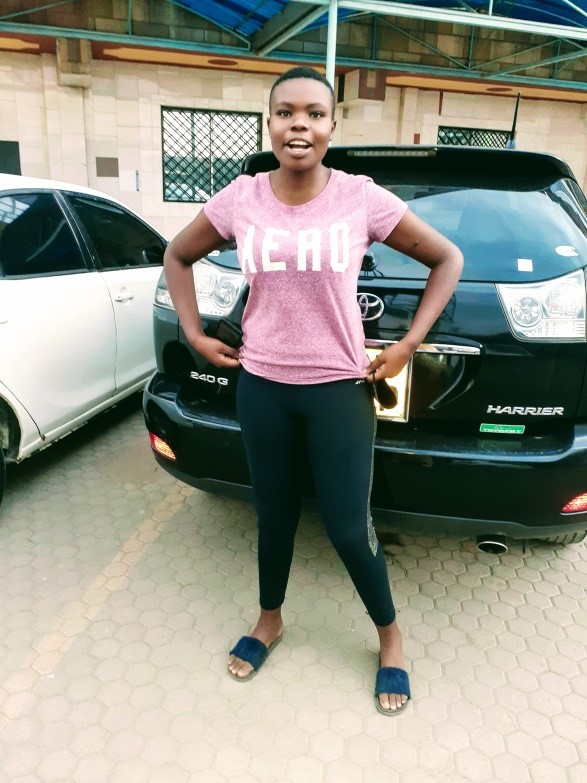
As funny as Rebecca’s views are, they indicate alarming apathy towards the virus. She says, for instance, that she does not fear meeting young people. “They are healthy,” she says with convoluted logic. “It is old people I fear. They might infect me with the virus,” she says. So while out walking, she says she avoids old people when they approach her. She further misrepresents another issue: “Government officials who report on Covid 19 on TV are usually not socially-distanced.” Fact-check: government officials are usually socially-distanced and masked in the press conferences. Then she and her friend Ann add that the government is most likely lying. Their supposition is based on two things, they say: one, initially the government indicated that the results of Covid 19 tests came out after three days. “How come now they report every 24 hours? Is it not possible that the results they are reading today are of tests carried out three days ago?” Their second reason for distrusting the government is based on the words of a Nigerian man who trended online for saying, “Covid 19 is a virus in the west. In Africa it is a business, a chance for government officials to make money.”
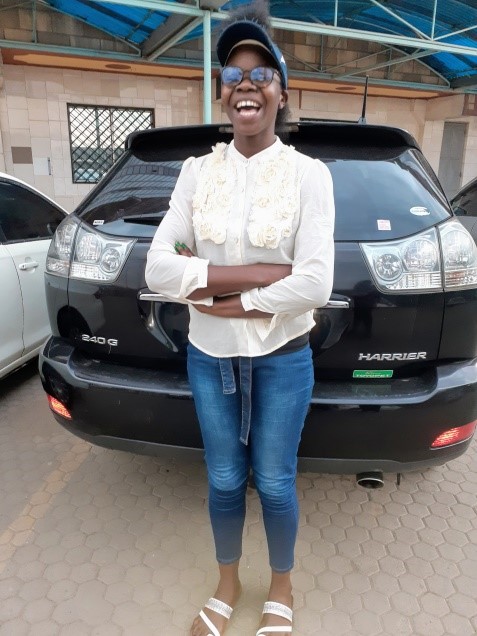
Their outrageous views needlessly endanger the health of their friend Laxinah Ambunya who joins them towards the end of our interview. Laxinah says she is terrified of Covid 19 and hardly ventures outside home. Ironically, she is not wearing a mask. “When my friends called me I left home in such a rush I didn’t pick the mask. I’ve been indoors for so long that the prospect of getting out made me not thing,” she says.
Our Services
View our Centre for Behaviour Change and Communication Services.













